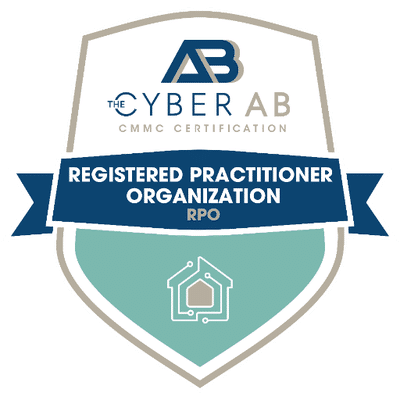If you’re a small business working as a subcontractor in the Department of Defense (DoD) supply chain, you’ve already heard a lot about the DoD Cybersecurity Maturity Model Certification (CMMC) program requirements.
You’ve also probably realized:
- They apply to everyone in the chain, not just the big primes.
- They “flow down” to every subcontractor – yes, even if you’re just manufacturing screws for military equipment.
For small companies with limited resources, the upcoming CMMC timelines and cost present a tough decision: Is it worth investing in compliance, or should we exit DoD and/or federal contracting entirely?
This guide walks through practical options, the key questions you should be asking, and where to go for help making the right call.
Why Small Businesses Are Struggling With CMMC
The CMMC framework is designed to protect Controlled Unclassified Information (CUI) across the entire defense industrial base and supply chain. While this makes sense from a security perspective, the CMMC certification process can be resource-intensive, especially for companies with small teams, modest budgets, and no in-house IT security staff.
Learn more: How Do I Get CMMC Certified? A Step-by-Step Walkthrough for Beginners
For many, the math becomes simple: Can we get, and remain, compliant without erasing our profit margin? That’s where ROI-driven decision-making comes in.
Questions Every Small DoD Subcontractor Should Be Asking
When weighing whether to invest in CMMC, it is important to recognize that safeguarding CUI is not optional. It is a federal mandate stemming from 32 CFR Part 2002, issued by the National Archives and Records Administration (NARA), that extends beyond the DoD. The DoD is the first agency to formalize a third-party certification program CMMC to enforce these requirements, but the underlying obligation to protect CUI applies to every executive branch agency.
Before you commit to a path, here are some critical questions to guide your CMMC readiness discussions:
1. Scope & Requirements
- Do we actually handle CUI, or can we structure our work so we don’t?
- What CMMC level do we truly need for our role in the supply chain?
- Could the prime contractor keep CUI in their environment so we don’t have to store, transmit, or process it?
Learn more: What CMMC Level Do I Need for My Business?
2. Cost & ROI
- What’s the total cost of CMMC certifications for us, both initial and ongoing?
- How much revenue would we lose if we exited DoD, and ultimately all federal work?
- Will compliance position us for more, and larger, contracts?
3. Solution Paths
- Could we be included in the prime’s CMMC certification?
- Could we use a managed service provider (MDP) or secure enclave to handle CUI?
- Could we partner with other small businesses to share compliance infrastructure?
4. Risk & Operations
- How will non-compliance impact our day-to-day processes and productivity?
- What happens if we fail a CMMC assessment, or are not able to maintain certification?
- How will compliance impact our day-to-day processes and productivity?
- What kind of CMMC training will our staff need?
Three Practical Compliance Strategies for Small Businesses
1. Limit Your Exposure to CUI
Work with your prime contractor to ensure you never actually receive or store CUI:
- Keep CUI entirely in the prime’s protected environment.
- Access it remotely under controlled conditions.
- Document the arrangement in your contract.
- Implement strict policies, training, and technical controls to prevent CUI leakage into your environment.
Pros: Minimal compliance footprint, faster path to meeting CMMC requirements.
Cons: Limits flexibility and may depend heavily on prime cooperation.
2. Use a Managed Service Provider or Secure Enclave
Leverage a third-party MSP or enclave solution (e.g., PreVeil) to handle CUI:
- The MSP manages secure storage, transmission, and monitoring.
- They must be CMMC Level 2 or FedRAMP equivalent.
- You still retain responsibility for some “customer” security requirements, based on their Customer Responsibility Matrix.
Pros: Faster CMMC readiness; predictable monthly costs, inherited compliance for many requirements.
Cons: Less control; ongoing subscription fees.
3. Build Internal Compliance Capabilities
Stand up your own IT/security infrastructure and team:
- Conduct a formal gap analysis using a reputable Registered Practitioner Organization (RPO).
- Remediate gaps to reach appropriate compliance levels.
- Invest in tools, policies, and staff CMMC training.
- Prepare for ongoing internal audits and updates.
- Consider compliance-as-a-service from third party providers as staff augmentation to maintain compliance activities
Pros: Full control; long-term investment in security maturity.
Cons: Highest upfront cost; slower CMMC certification process.
How to Decide Which Path is Right for You
If you’re unsure which option makes sense, start with a CMMC readiness review and cost analysis:
- Identify your current handling of CUI.
- Map requirements from the CMMC framework to your actual operations.
- Estimate costs for each compliance pathway.
- Factor in contract value, renewal probability, and potential new work.
Why Work With 38North Security
38North Security is a designated CMMC Cyber-AB RPO with a several CMMC Certified Practitioners (CCPs). That means we’ve been vetted and recognized by the Cyber Accreditation Body to guide companies through the CMMC certification process, from scoping and gap analysis to training and readiness support.
We also partner with many of the C3PAOs and MSPs in the CMMC space and can guide you towards the best company or capability for your specific needs. As a small company ourselves, we understand the challenges small subcontractors face and we specialize in helping you find the most cost-effective path to compliance without overbuilding or overspending.
Next Step: Get Expert Help Before You Commit
For small subcontractors, the wrong decision can mean either overspending on compliance or walking away from profitable work unnecessarily. The decision to “stay in the game” should not be viewed as a DoD-only requirement. Investing in CMMC compliance positions your organization to meet not just defense contract obligations, but the broader federal mandate to protect CUI, ensuring eligibility for business with the U.S. government as a whole.
We can help you:
- Pinpoint your required CMMC level.
- Identify the fastest, most cost-effective compliance route.
- Connect you with trusted MSP and enclave providers.
- Walk you through the CMMC certification process step-by-step.
- Ultimately, decide if CMMC is appropriate for your company.
Reach out for a free 1-hour consultation: Let’s find the right balance between security, compliance, and profitability. Get in touch with a CMMC expert today.





